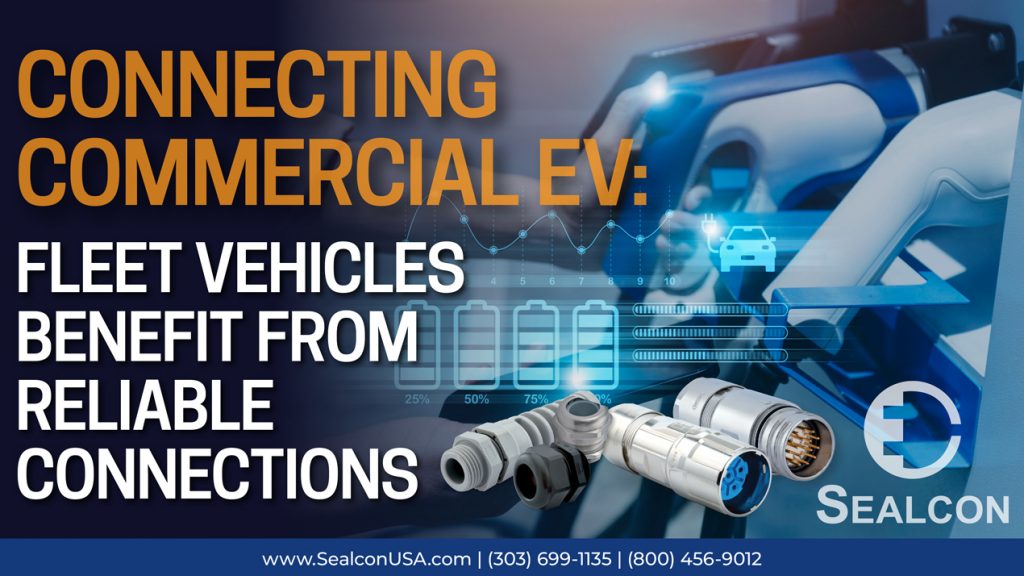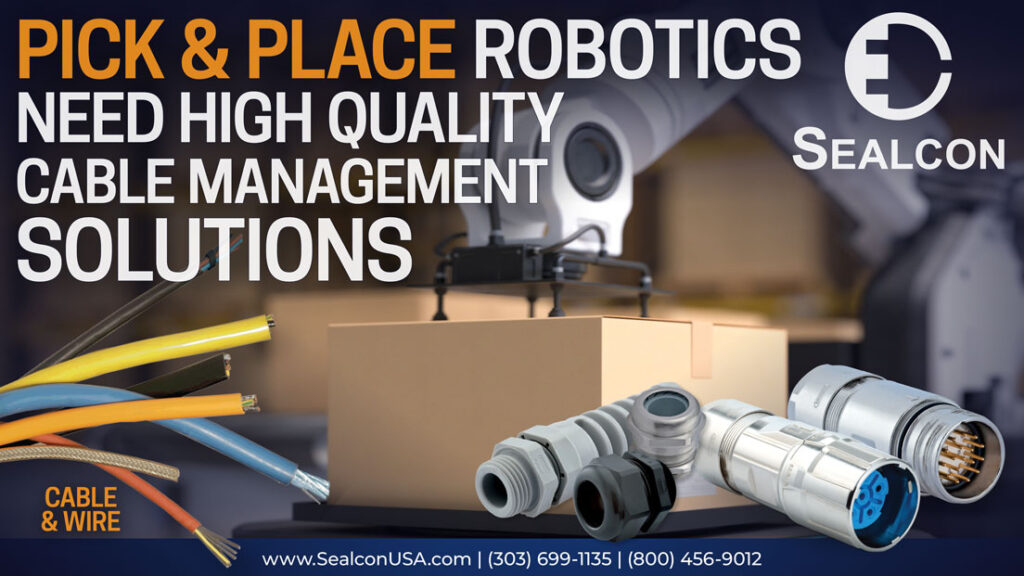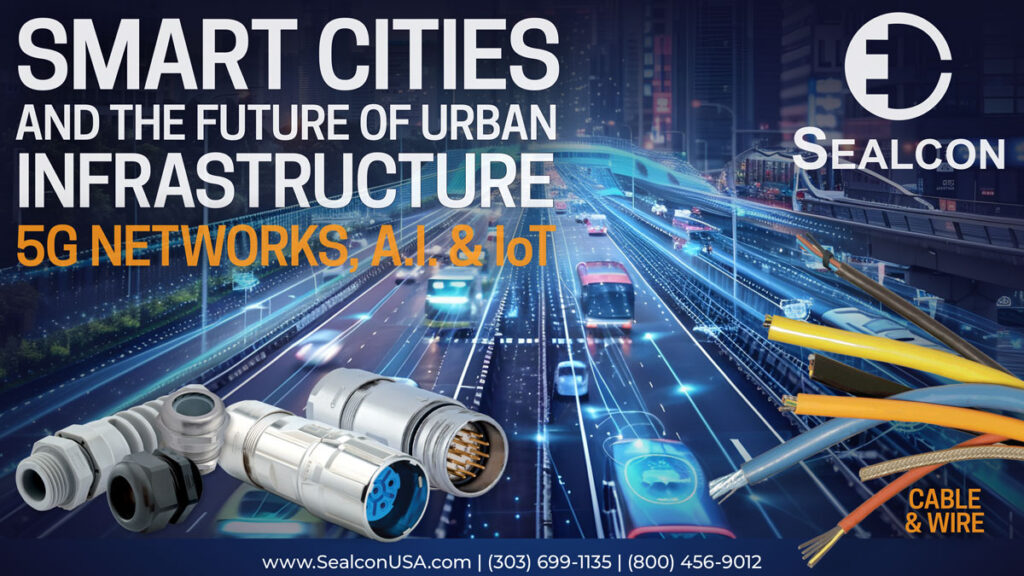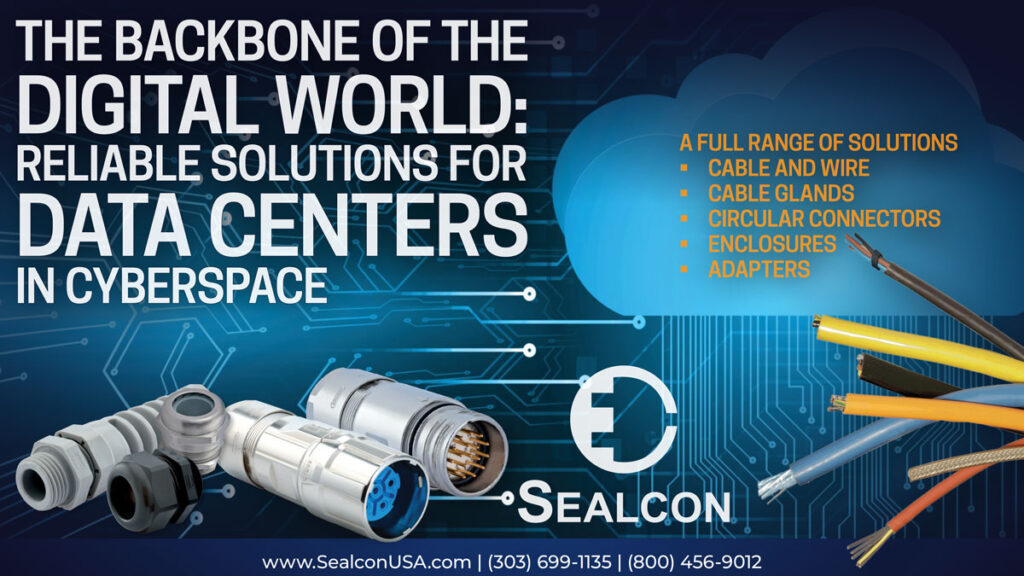Connecting Commercial EV: Fleet Vehicles Benefit from Reliable Connections

In recent years, the electric vehicle (EV) movement has ramped up, leading to a significant increase in the adoption of electric buses, commercial vehicles, and fleet vehicles. At the same time, fleet managers are integrating Internet of Things (IoT) technologies into their operations to optimize the management of buses and commercial vehicles.
As this shift towards an EV driven world becomes increasingly prevalent, the importance of dependable connectors for power stations and vehicles cannot be understated. Similarly, the growing use of online data management and digital communication technologies for fleet management are creating an increasing need for reliable connectivity solutions.
The Growing Fleet EV Market
EV technology is rapidly evolving, providing numerous advantages over traditional internal combustion engines. Lower emissions, reduced maintenance costs, and greater energy efficiency are some of the key benefits that make electric vehicles an attractive option for the private sector.
These same benefits are attractive for fleet vehicle applications, with some added specific advantages for commercial vehicles. For example, EV buses offer a quieter and smoother ride, improving passenger comfort. Also, the instant torque and power of EVs make them well-suited for stop-and-go urban routes common to buses and utility vehicles.
Beyond these benefits, the environment in which fleet vehicles are maintained is highly conducive for electric vehicle needs. The depots and lots where fleet vehicles are kept provide an ideal location for the charging infrastructure required for EV vehicles.
The Internet of Things
The Internet of Things (IoT) offers a variety of benefits for commercial electric vehicle fleets. IoT technology allows for real-time monitoring and control of vehicles, enabling fleet managers to optimize vehicle performance, track usage, and maintain efficient operations. Through IoT, commercial EVs can provide valuable data on battery status, energy consumption, and vehicle health, leading to predictive maintenance, reduced downtime, and lower operational costs.
IoT can also enhance route planning and navigation, helping drivers find the most efficient charging stations and routes, further increasing the overall productivity and sustainability of commercial EV fleets. Empowering commercial EV vehicles with advanced connectivity and data-driven insights, IoT enhances overall fleet efficiency, reliability, and environmental impact.
The Role of Cord Grips and Connectors
Dependable cord grips and connectors are essential components of any EV charging system, ensuring safe and reliable connections between the power source and the vehicle. These components are also crucial for IoT devices. Here’s how they benefit these specific applications:
Commercial Fleet Vehicles
In the context of commercial fleet vehicles, such as delivery trucks or vans, dependable cord grips and connectors are critical components of EV charging stations.
Fleet management systems rely on IoT devices to monitor vehicle performance and collect data on fuel consumption, maintenance needs, and driver behavior. Cord grips and connectors are essential for connecting these IoT sensors to the vehicle’s data systems, ensuring that real-time data is transmitted accurately and consistently.
Buses
Electric buses depend on reliable cord grips and connectors to facilitate efficient charging. Some systems employ connectors on the roof of the bus, which extend and connect with overhead charging infrastructure, ensuring a dependable and high-capacity charging solution for electric buses.
Buses often incorporate IoT sensors for monitoring passenger loads, temperature control, and route optimization. Cord grips and connectors are crucial for connecting these sensors to the bus’s onboard computer systems, allowing for real-time data collection and analysis.
Utility Vehicles
Utility vehicles, like electric bucket trucks used by utility companies, rely on dependable cord grips and connectors for their charging needs. Connectors provide a secure and standardized interface for Level 2 AC charging, ensuring utility vehicles are ready for service.
Utility vehicles may use IoT technology to monitor equipment health, track location, and optimize maintenance schedules. Cord grips and connectors play a crucial role in connecting these IoT sensors to the utility vehicle’s systems, enabling real-time data transmission for better operational efficiency.
Trust Sealcon for Commercial Fleet EV and IoT Connectivity
Sealcon is here to assist you in finding the right component for your EV fleet needs and IoT applications. We’ll get you the connectors and cable glands you need on time and within budget. Contact us to discuss your project and get a free quote.

 Pick & Place Robotics Need High Quality Cable Management Solutions from Sealcon
Pick & Place Robotics Need High Quality Cable Management Solutions from Sealcon  Smart Cities and the Future of Urban Infrastructure Needs Sealcon Connectivity
Smart Cities and the Future of Urban Infrastructure Needs Sealcon Connectivity  The Backbone of the Digital World: Reliable Solutions for Data Centers in Cyberspace
The Backbone of the Digital World: Reliable Solutions for Data Centers in Cyberspace